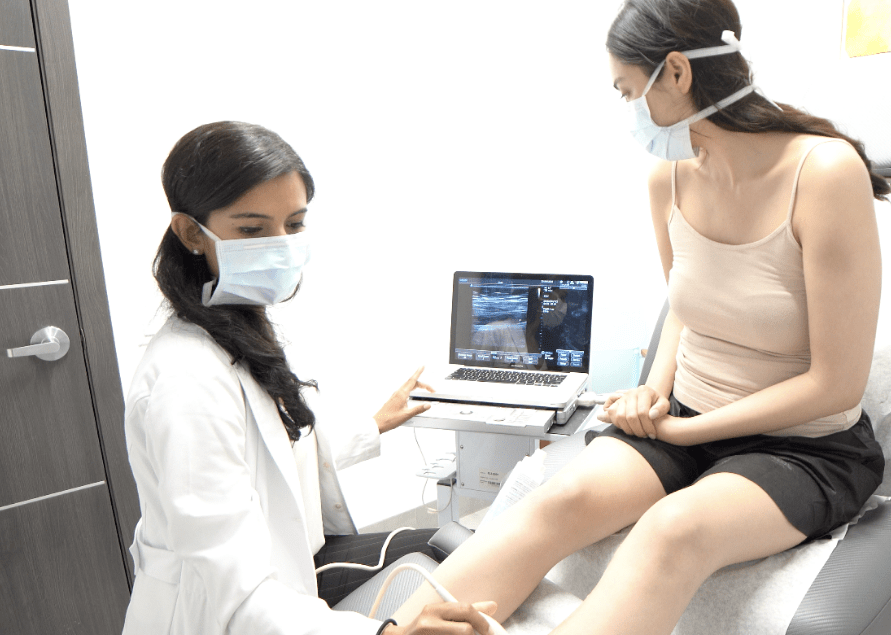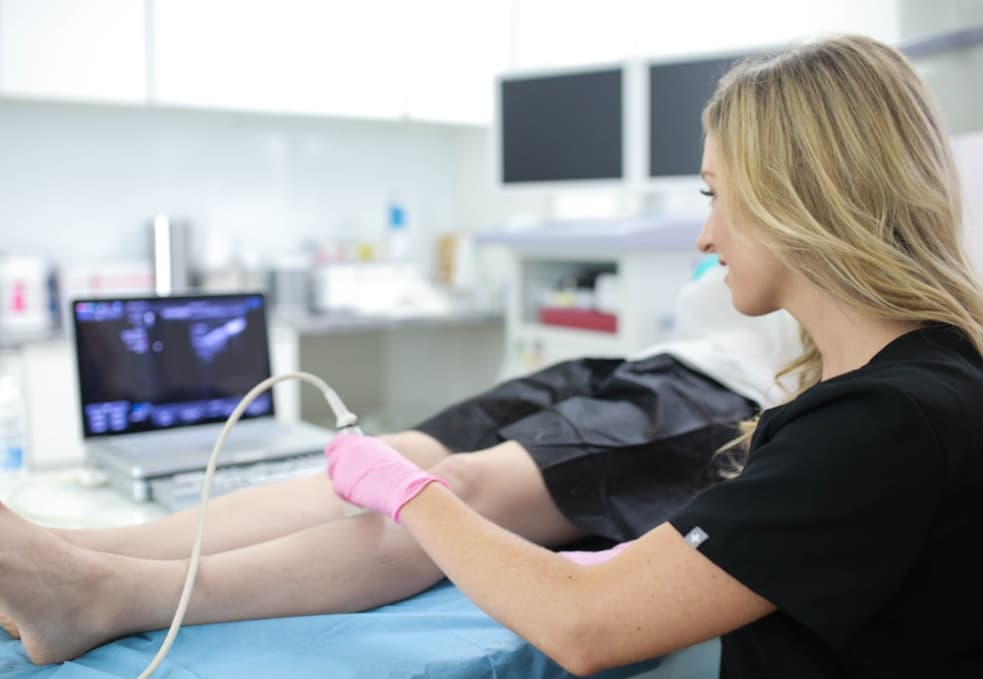Does radiofrequency ablation hurt?
One of the most common questions about radiofrequency ablation (RFA) for vein treatment is whether it hurts. The short answer is that RFA is generally not a painful procedure. While you may experience mild discomfort or pressure during the treatment, most patients do not report significant pain. Prior to the procedure, your vein doctor will numb the area with a local anesthetic to reduce any potential discomfort. Some patients may also be given a sedative to help them relax during the procedure.
Every patient is different and may have a different pain tolerance. If you are concerned about pain during radiofrequency ablation, please discuss this with your vein doctor, and they can offer additional pain management options. The board-certified vein doctors at our medical centers for vein treatment in Long Island ensure you have a safe and comfortable vein treatment experience with little to no discomfort. Please visit our vein doctors in West Islip, Hampton Bays, Port Jefferson, or Jericho to explore your vein treatments in Long Island.

How does radiofrequency ablation help with chronic venous insufficiency?
Chronic venous insufficiency (CVI) is a condition in which the veins in the legs don’t function properly, resulting in symptoms such as swelling, pain, skin changes, spider veins, and varicose veins. RFA is a minimally invasive treatment for chronic venous insufficiency that uses heat to seal off the affected veins.
During the procedure, a small incision is made in the skin, and a thin tube (called a catheter) is inserted into the diseased vein. Radiofrequency energy is then transmitted through the catheter, which causes the walls of the vein to heat up and seal shut. This effectively closes off the vein and redirects blood flow to healthier veins.
RFA is an effective treatment for CVI because it improves blood flow and alleviates the symptoms of vein disease. It is also a minimally invasive option that does not require a lengthy recovery. You can resume your daily activities and work immediately after the treatment, making it the perfect lunchtime procedure.
How long does it take to recover from a vein ablation?
The recovery time after RFA is generally short, and most patients can resume their normal activities immediately. You may need to wear compression stockings for a period of time after the procedure to reduce swelling and improve blood flow. Furthermore, strenuous workouts and heavy lifting should be avoided for a few days, but normal activities can be resumed instantly. Your vein doctor will provide specific instructions on caring for the treated area and when you can resume normal activities.
What to expect during vein ablation?
The RFA procedure typically takes about an hour to complete and is performed on an outpatient basis. Before the procedure, you will be given a local anesthetic to numb the area and a sedative to help you relax. During the procedure, a small incision is made in the skin, and a catheter is inserted into the vein. Radiofrequency energy is transmitted through the catheter, causing the walls of the vein to heat up and seal shut. The catheter is removed, and the incision is closed with a small bandage. You may experience mild discomfort or pressure during the procedure, but most patients do not report significant pain.
Are you awake for vein ablation?
Yes, you will be awake during the RFA procedure. However, you may be given a sedative to help you relax and reduce any anxiety.
Can I walk after vein ablation?
Yes, you can walk after the RFA procedure. However, your vein doctor may recommend that you take it easy for the first few days and avoid strenuous activities. You may also need to wear compression stockings for a period to reduce swelling. It’s important to follow your vein doctor’s instructions carefully to ensure a smooth recovery.
Is vein ablation worth it?
Radiofrequency ablation is completely worth the time and effort. Vein ablation is a fairly simple and painless procedure that concludes within an hour and doesn’t involve any downtime or harsh complications. You can also receive insurance coverage for vein ablation because it’s considered a medically necessary procedure. Furthermore, if left untreated, chronic venous insufficiency can lead to numerous unwanted complications, such as deep vein thrombosis, leg ulcers, and more. As such, undergoing vein ablation is completely worth it.
How long do you wear compression stockings after vein ablation?
Compression stockings are a type of elastic garment worn around the leg to improve blood flow and reduce swelling. They are often recommended after vein ablation (RFA) to reduce the risk of complications and improve the overall outcome of the procedure. The length of time you will need to wear compression stockings after RFA will depend on your individual circumstances and the recommendation of your doctor.
You may need to wear the stockings for a few days to a few weeks after the procedure. Initially, you may have to wear compression stockings throughout the day, but you can gradually reduce the hours per day. It’s important to follow your doctor’s instructions carefully and wear the stockings as directed. This will ensure a smooth recovery and improve the overall success of the RFA procedure.
What is the success rate of vein ablation?
The success rate of vein ablation, also known as radiofrequency ablation (RFA), is generally high. Studies have shown that RFA is effective in closing off the treated vein and redirecting blood flow to healthier veins in the majority of cases. In one study, the success rate of RFA for CVI was reported to be between 93% and 97%.
You must remember that the success rate of RFA may depend on the individual patient and the specific circumstances of the procedure. Furthermore, you must visit a state-of-the-art medical center for vein treatment specializing in cutting-edge treatments. Please schedule an appointment at our medical centers for vein treatment to explore your options.
